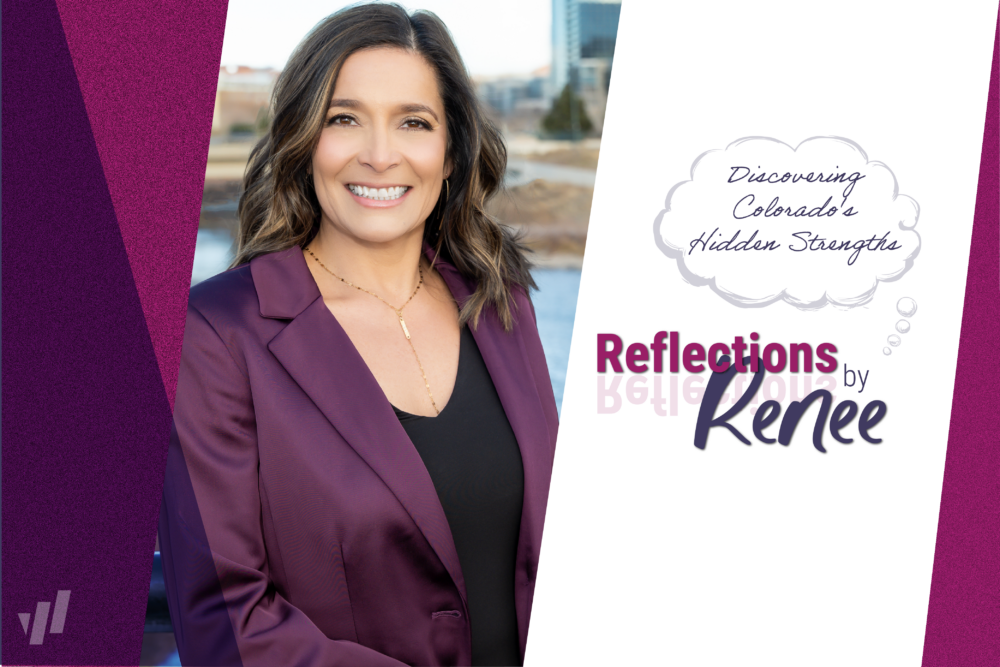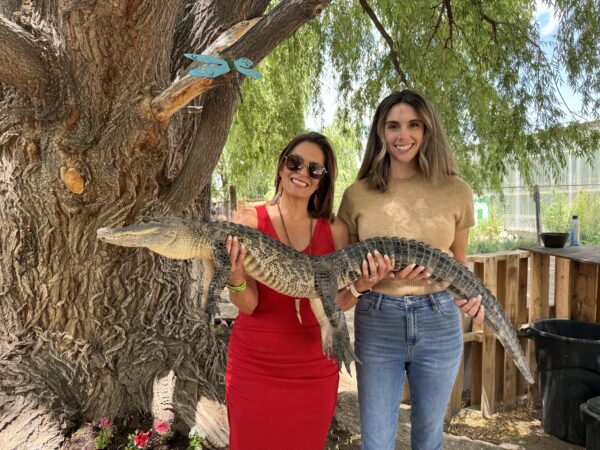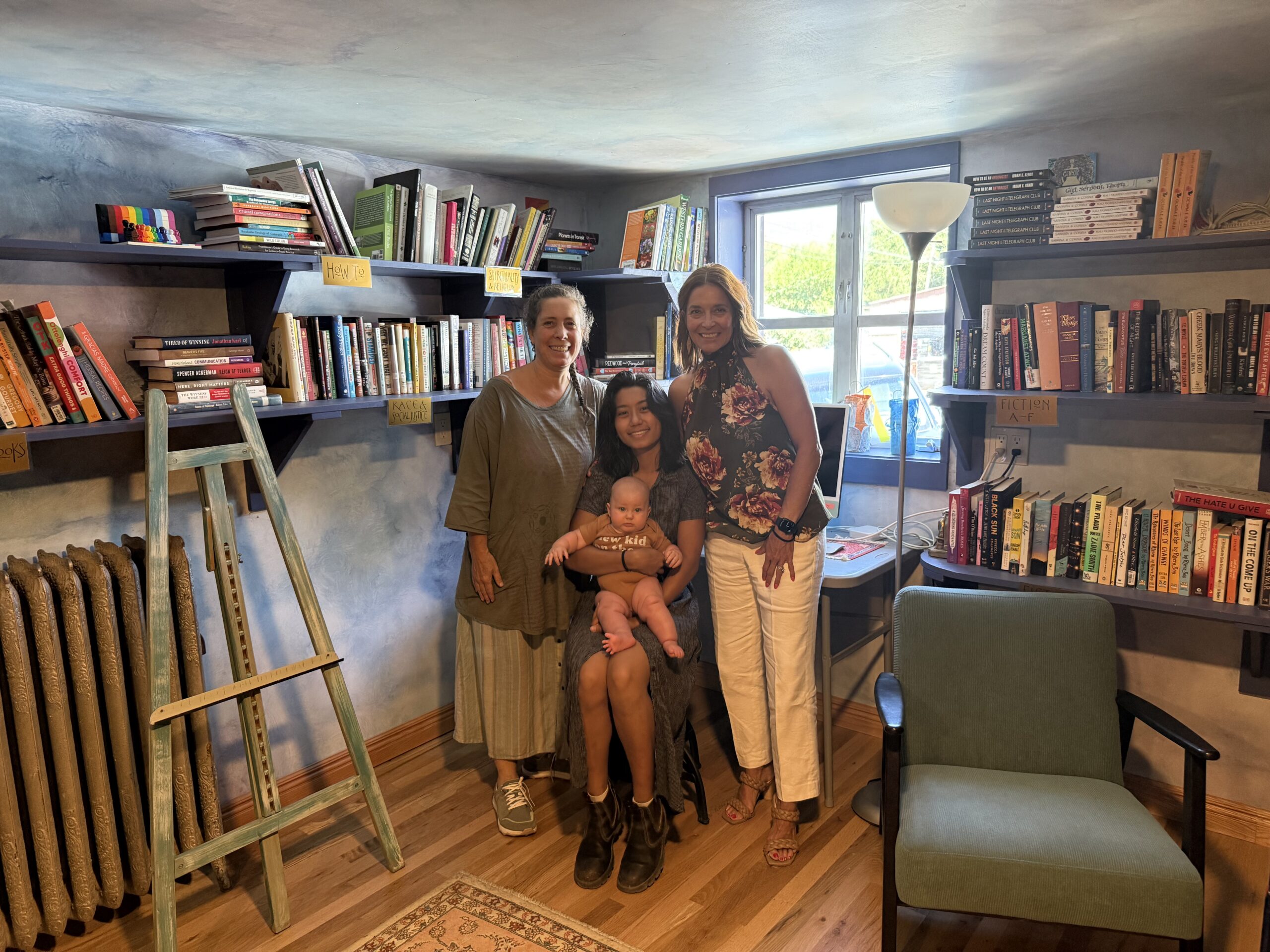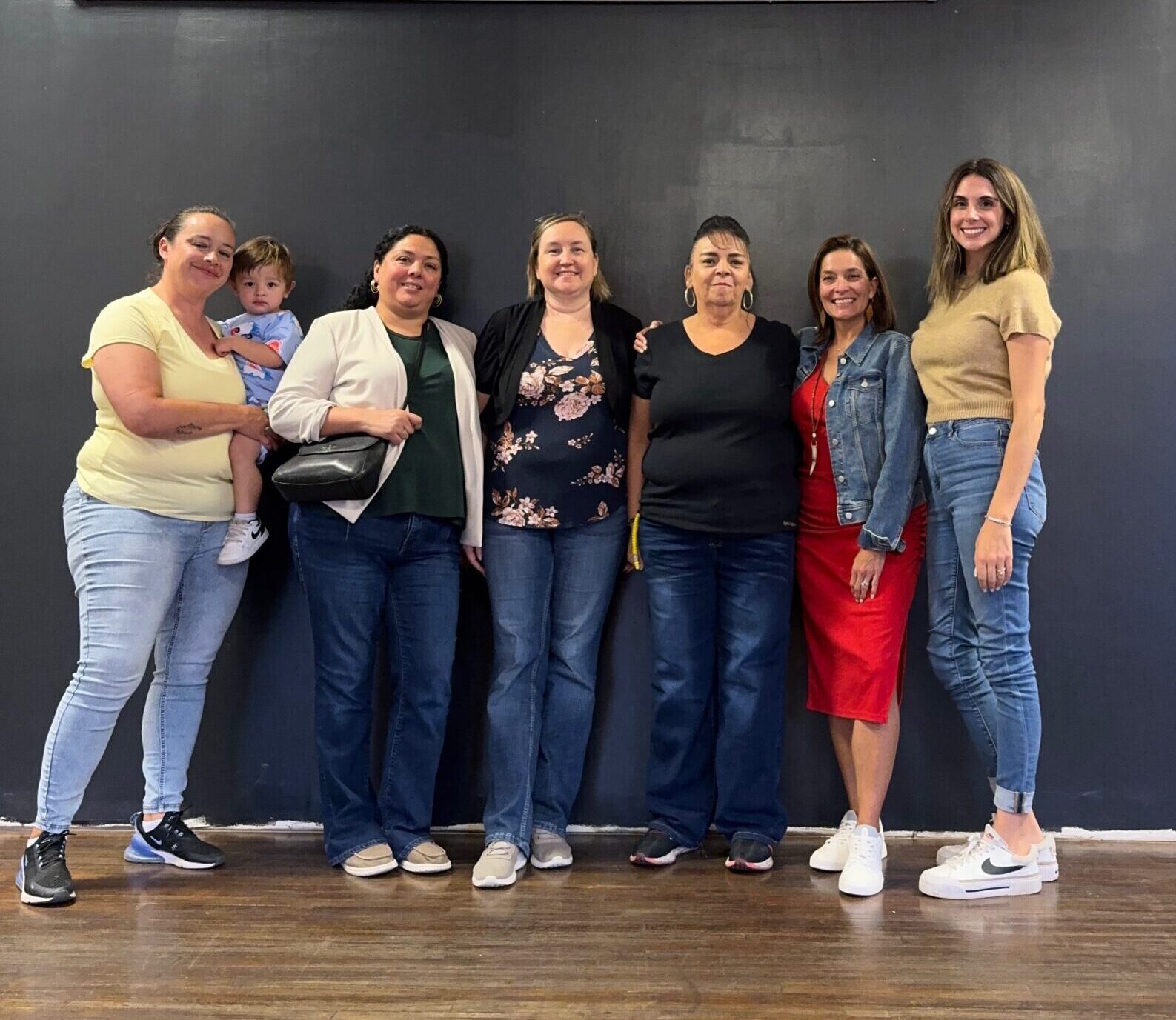
Reflections by Renee: Discovering Colorado’s Hidden Strengths and Interconnectedness
Discovering Colorado’s Hidden Strengths 
You’d think that after being raised in Sterling, CO, and living in Denver for 25 years, I’d know Colorado inside and out. I’ve traveled from corner to corner, and what I’ve learned along the way is this: there’s always more to discover.
Not just quirky attractions like the Colorado Gator Farm or UFO Watchtower (though both are worth a stop), but organizations—and especially women—working quietly and powerfully to strengthen our communities. From the leaders of Food to Power in Colorado Springs to The Learning Council in Delta County, to Alianza NORCO in Larimer County and Aspen Public Radio’s Women’s Desk Network, Colorado is full of unsung heroes building a stronger future. Although all are incredibly powerful alone, our interconnectedness is our most powerful tool for change. And right now, that tool has never been more essential.
Federal Headwinds, Local Consequences
Just two weeks after I stepped into my role as president and CEO, a new federal administration vowed to strip funding from entities that prioritize diversity, equity, and inclusion. Congress followed by cutting basic public supports while boosting funding for inhumane detention and billionaire tax breaks.
For Colorado women, especially those already navigating structural inequities, these policy reversals are devastating. As the only statewide community foundation focused on women’s progress, we must act quickly and boldly. That’s why I traveled the state: to hear firsthand from grantee partners, donors, and community members about the challenges ahead and the opportunities we can seize together.
Colorado Is Aging—And That Matters
At every stop, State Demographer Kate Watkins reminded us: Colorado is aging rapidly. With fewer births and lower migration, many counties will soon face population decline. That means less tax revenue and more pressure on state and local budgets already stretched by a $2 billion deficit.
In this environment, nonprofits must bridge widening gaps. And we must reject the harmful belief that poverty stems from “bad choices.” Women are more likely to rely on Medicaid not because of poor decisions, but because of structural inequities: lower wages, limited career opportunities, and caregiving responsibilities that reduce earning power.
Consider Sydney, a mother I met in Pueblo. She works two full-time jobs and, until recently, supplemented her income with sex work to support her gifted son who is on the autism spectrum. Child care alone costs her over $20,000 a year. If she loses Medicaid, she’ll face an impossible choice between her son’s health and his education—erasing years of hard-won progress.
Her story shows why safety nets are not handouts, but lifelines.
Partnering for Progress 
Across the state, the same themes surfaced: a lack of opportunity, affordable housing, and pathways for the next generation to build their lives—especially in rural areas where many want to stay but feel pushed out.
No person, organization, business, or government program can solve this alone. The solution? Partnering for progress.
In Pueblo, we saw a powerful example: Pueblo Community College and St. Mary Corwin Medical Center created a state-of-the-art simulation academy and human anatomy lab to train future medical professionals. This partnership strengthens the workforce, keeps talent local, and builds a healthier community for families and older adults alike.
The Women’s Foundation is proud to play a role in this effort. Through a $550,000 Saraswati grant, we’re funding scholarships and wraparound services for 95 women in partnership with Pueblo Community College – as well as MSU Denver and Emily Griffith Technical College.
Community Solutions Start With Women 
Women are keepers of culture, community caretakers, and catalysts for change. In Paonia, The Learning Council, led by Alicia Michelson, hosts weekly community meals where neighbors from different backgrounds break bread and learn from each other. These simple gatherings have inspired more people to engage in local government and share their voices.
In Aspen, women pooled resources to launch a Women’s Desk Network at Aspen Public Radio—ensuring that women’s perspectives are represented in stories on health, politics, education, and the arts. That’s the power of collective action.
In Colorado Springs, Patience Kabwasa used her own experience as a single mom without access to healthy food to provide for the city’s Hillside Community. As the executive director of Food to Power, in 2024 she and her team saved and gave away more than 400,000 pounds of fresh food — equivalent to 337,000 meals and worth $1.5 million.
Listening Is Only the First Step
Everywhere I went, I was reminded: listening matters. But listening alone is not enough. Acting on what we learn is the true test of leadership.
At The Women’s Foundation of Colorado, we are stretching ourselves in response to tighter budgets and growing needs. We’re prioritizing:
- Collaborative funding models that bring more partners to the table who are committed to community-led solutions
- Stronger geographic representation on our board
- Regional leadership development to grow the next generation of women community leaders
- Getting off our assets to meet growing community needs, compounded by punitive federal policy and Colorado’s TABOR limits.
We look forward to sharing an exciting announcement next month about how our foundation is responding to what we learned on our statewide tour, “Reaching New Heights with Renee.”
The Power of Interconnection 
The challenges ahead are real: shrinking resources, widening inequities, and policy setbacks designed to undo decades of progress. But Colorado has something powerful on our side: interconnectedness.
When women, nonprofits, businesses, and communities come together, we create solutions no single group could achieve alone. We break bread, we pool resources, we innovate, we stretch ourselves, and we rise together.
The future of Colorado women—and of our state—depends on it.

